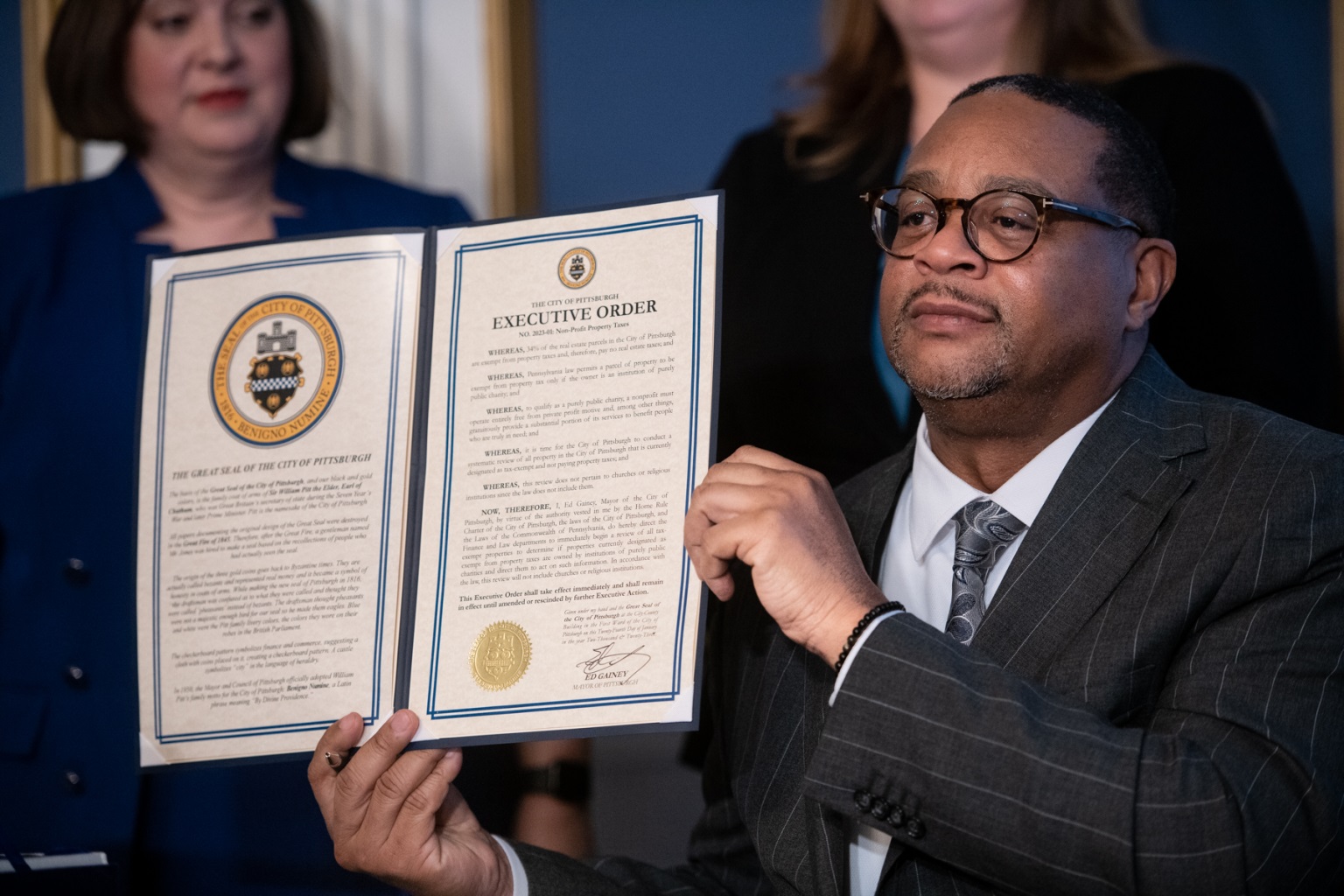Gainey orders review of tax-exempt property
Pittsburgh Mayor Ed Gainey holds up an executive order addressing non-profit tax-exempt property after signing it in his City-County Building offices on Tuesday, Jan. 24, 2023, in Downtown. Behind him is Krysia M. Kubiak, chief legal officer and city solicitor, left, and Jen Gula, director of finance and treasurer for the city. (Photo by Stephanie … Continued The post Gainey orders review of tax-exempt property appeared first on New Pittsburgh Courier.


Challenging tax-exempt status would be difficult, but could yield the city millions annually.
Mayor Ed Gainey made a long-awaited initial public move to tap major nonprofits on Tuesday, announcing a citywide review of tax-exempt property to determine where that status should be challenged.
The initiative appears to be Gainey’s first step toward fulfilling one of the key promises of his 2021 campaign — making healthcare giant UPMC and potentially others “pay their fair share” of public costs. He will be the third consecutive Pittsburgh mayor to wrestle with a Pittsburgh dilemma: Renowned hospitals and universities bring jobs and prosperity, but they pay relatively little into the city’s operating funds.
UPMC wrote to PublicSource following Gainey’s announcement that UPMC has “long been committed to being a great neighbor” to Pittsburgh. “The City of Pittsburgh and Mayor Ed Gainey, with whom we have met, are aware of UPMC’s ongoing support and can count on our full participation in programs that are fair and equitable and include the region’s other major nonprofits,” said UPMC’s chief communications officer, Paul Wood.
Monday’s executive order impacted all nonprofits generally, but UPMC has the most property — and money — at stake.
Almost 20% of property in Pittsburgh is privately owned and tax-exempt. If those properties were taxable, the city would collect an additional $50 million annually. With the city budget tightening and federal relief funds running out in 2024, tapping into that pool of money could go a long way to stabilizing the city’s finances.

From left, Maria Montaño, press secretary for Mayor Ed Gainey, Pittsburgh Mayor Ed Gainey, Krysia M. Kubiak, city solicitor, and Jen Gula, director of finance and treasurer for the city, announce a city-led review of non-profit tax-exempt property in Pittsburgh on Tuesday, Jan. 24, 2023, at the mayor’s City-County Building offices in Downtown. Almost 20% of property in Pittsburgh is privately owned and tax-exempt. (Photo by Stephanie Strasburg/PublicSource)
“We need this money to properly run the city,” Solicitor Krysia Kubiak said.
Gainey will not seek to wholly revoke the nonprofit status of any organization; he is instead directing city lawyers to examine each piece of tax-exempt property to determine if the owner is using it specifically for a qualifying charitable purpose.
Read entire story here
The post Gainey orders review of tax-exempt property appeared first on New Pittsburgh Courier.







